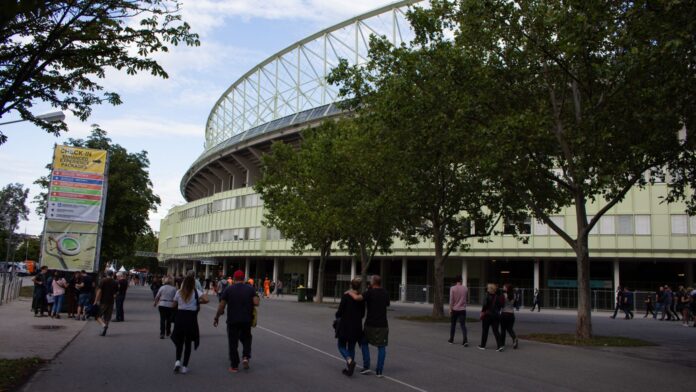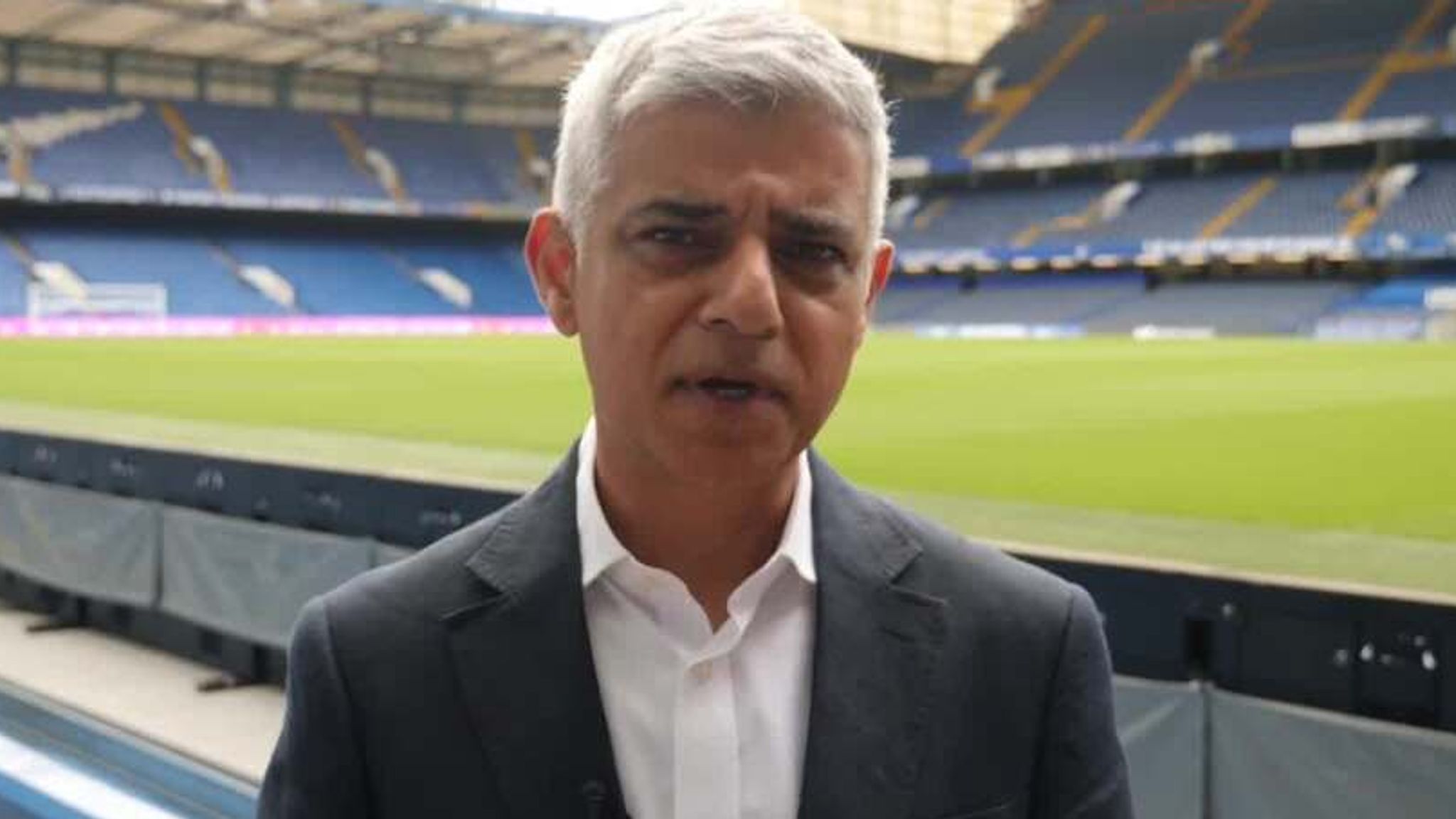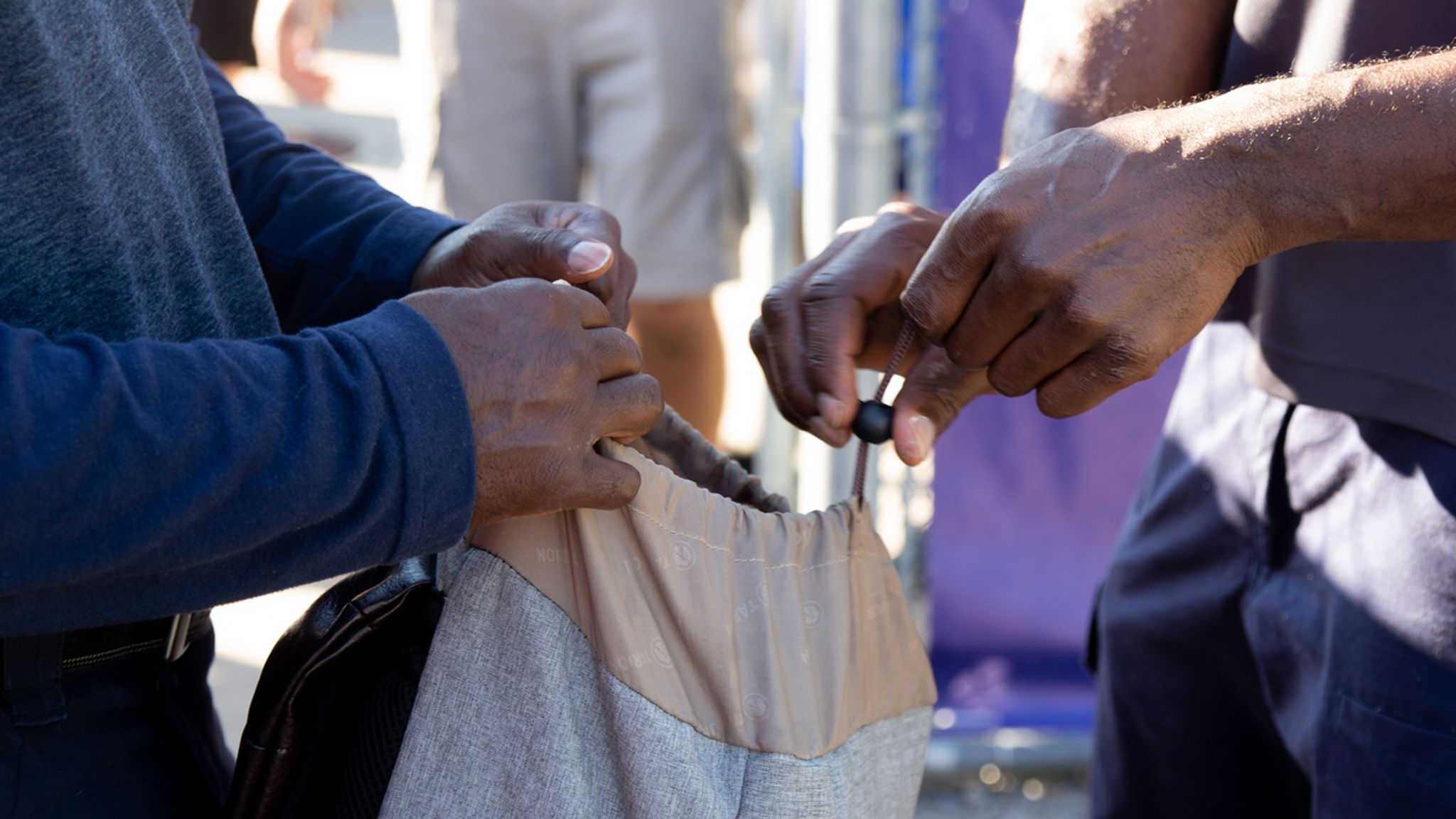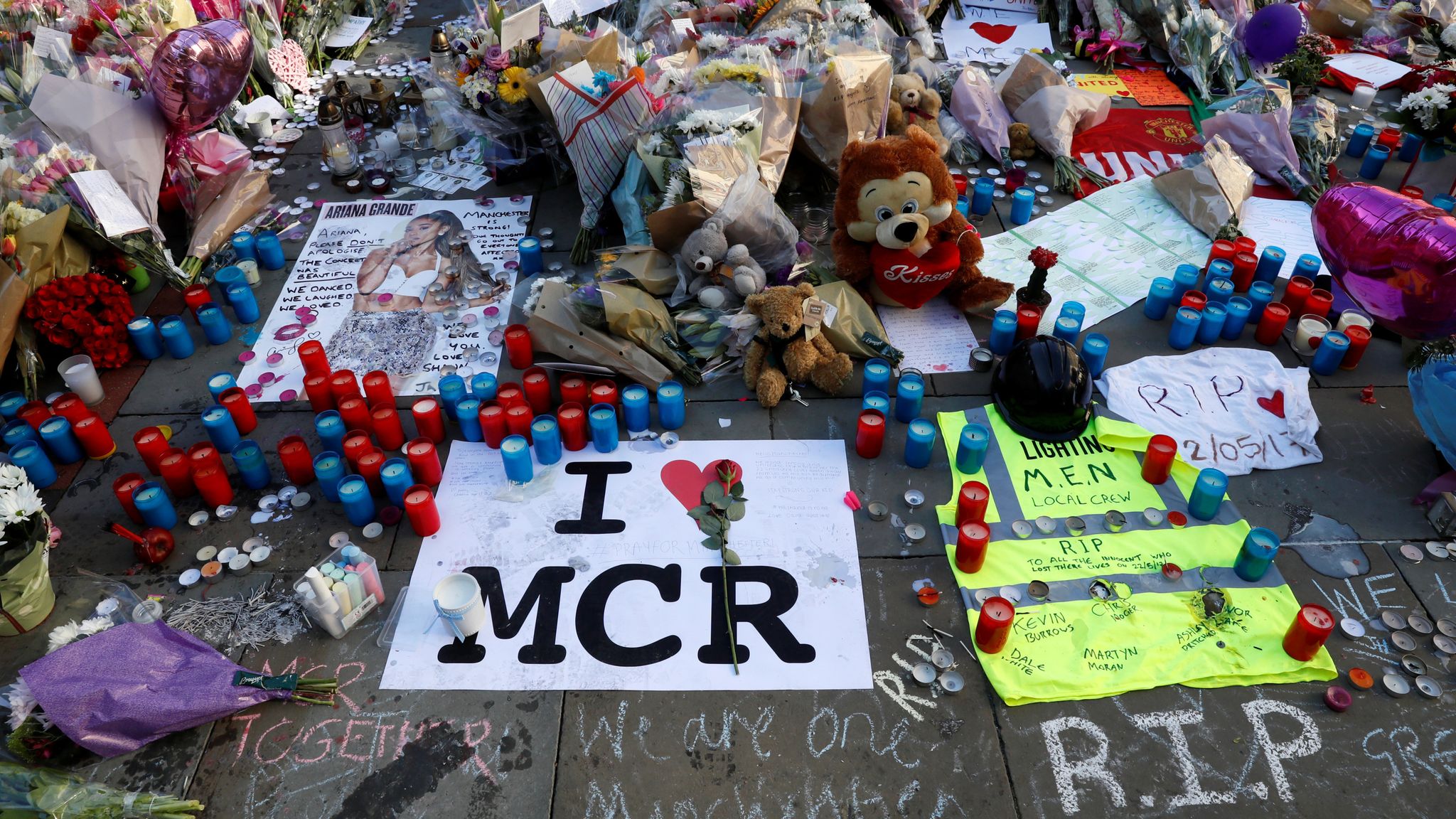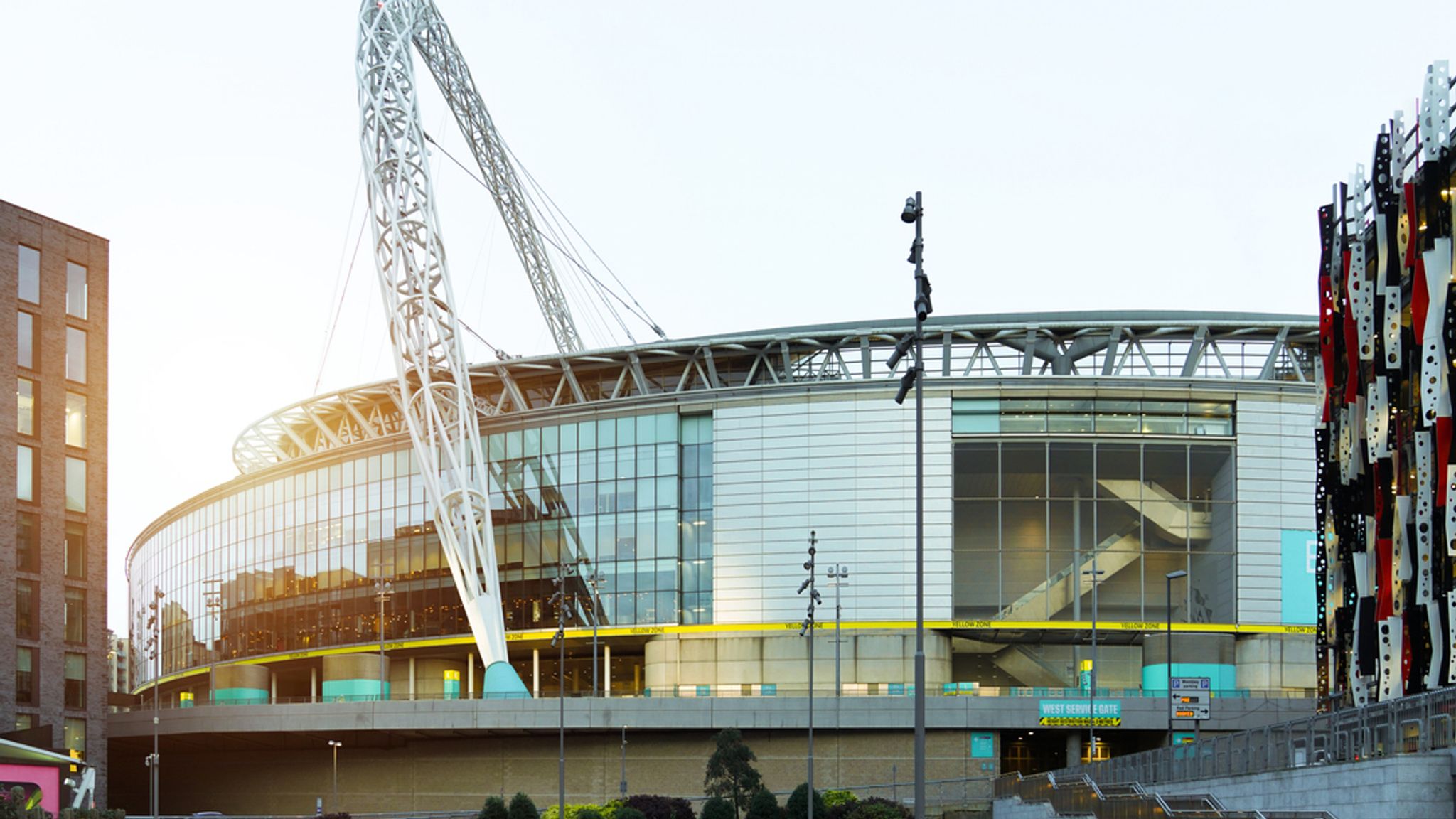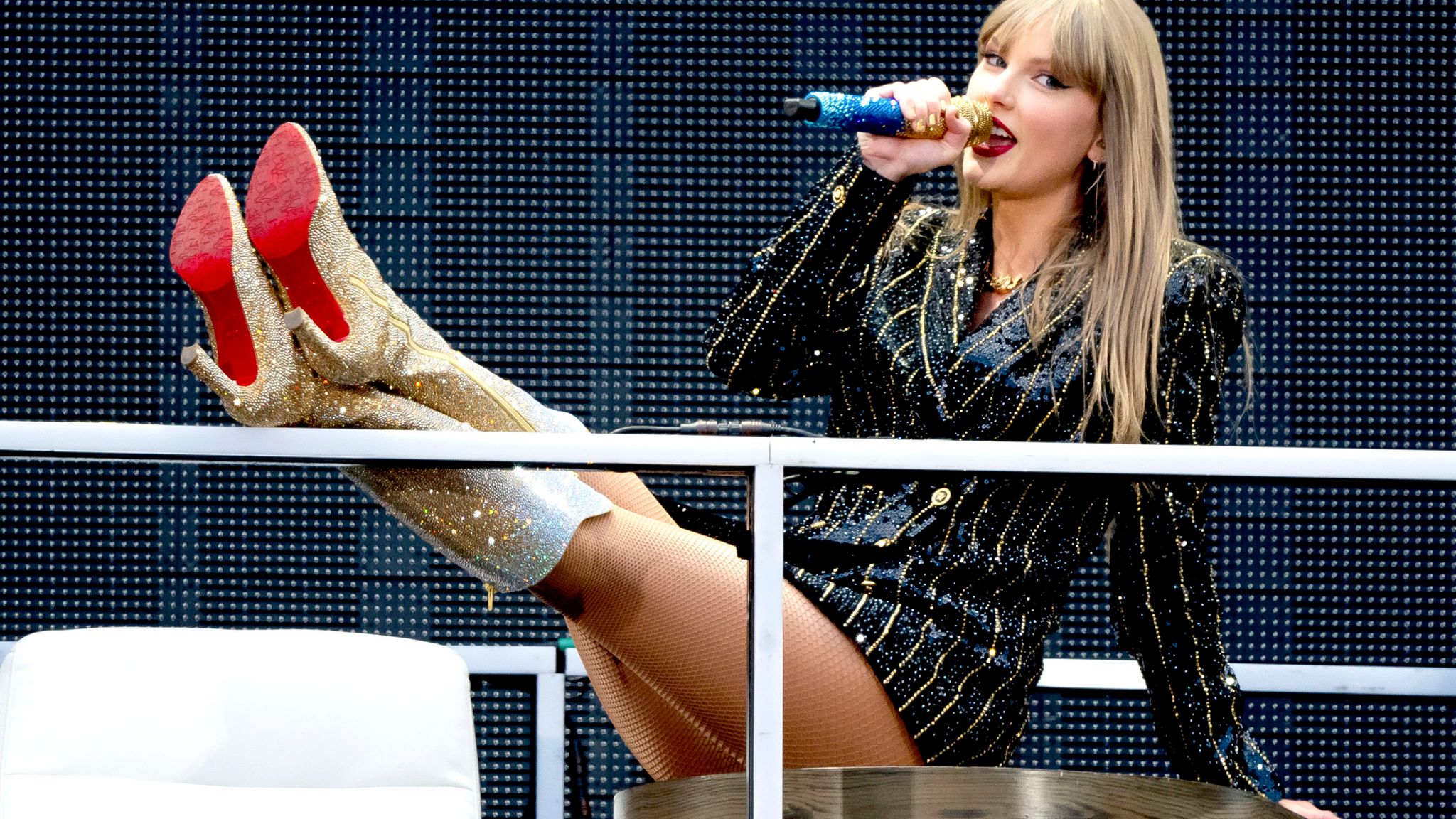Three Taylor Swift concerts have been cancelled in Austria over a suspected terrorist plot.
Swift was due to play at Vienna’s Ernst Happel Stadium on Thursday, Friday and Saturday, but event organisers announced their cancellation on Wednesday after two men were arrested over an alleged terror plot said to be targeting the events.
The cancellations come as fans prepare for the pop star’s concerts at Wembley Stadium, which are set to run for five nights, starting on Thursday 15 August.
Here’s a look at what we know about the alleged plot in Vienna, what authorities in the UK have said about whether the London gigs will be affected and what security will be in place at Wembley.
What was the threat in Austria?
Two men – a 19-year-old and a 17-year-old – have been arrested in connection with the suspected terror plot which, police said, looked to target major events in Vienna, including the upcoming Swift concerts.
The suspects had been under surveillance for some time and were well known to Austrian authorities, the officials added.
Officials said the 19-year-old had carried out “concrete preparatory actions” for the plot, adding chemicals and “technical devices” were found during a search of his home.
They said the suspect had posted an oath of allegiance to the current leader of Islamic State to an internet account weeks earlier.
The 19-year-old, said to have North Macedonian roots, is considered the main suspect, and worked closely with the 17-year-old Austrian, general director for public security Frankz Ruf told the broadcaster ORF.
He was aiming to “kill himself and a large crowd at the concert,” the head of Austria’s Directorate of State Security and Intelligence, Omar Haijawi-Pirchner, said.
The 17-year-old had started a job at the concert venue days before the Swift gigs were cancelled.
A 15-year-old Austrian national has also been questioned after being identified as a suspect, an intelligence official has said, according to Reuters, although it is not clear if he is also being detained.
Officials have confirmed no other suspects are being sought.
What the Met Police says about security at the Wembley gigs
Swift already played for three nights at Wembley in June. But such is her popularity, she has five more gigs to go at the stadium – on the 15th, 16th, 17th, 19th and 20th of August.
When asked about the Vienna terror plot and whether it would have an impact on the Wembley gigs, a Metropolitan Police spokesperson told Sky News: “London plays host to a significant number of very high profile events each year with millions of visitors having a safe and enjoyable experience.
“The Met works closely with venue security teams and other partners to ensure there are appropriate security and policing plans in place.
“There is nothing to indicate that the matters being investigated by the Austrian authorities will have an impact on upcoming events here in London.
“As always, we will continue to keep any new information under careful review.”
Sky News asked London Mayor Sadiq Khan about whether security plans had changed at Wembley due to the Vienna cancellations.
“We’ve got a huge amount of experience in policing these events. We are never complacent,” Mr Khan said.
“Many lessons were learned after the awful Manchester Arena attack.”
The mayor added police “work really closely, not just with City Hall and with councils, but also with those who host concerts”.
“I’m sure Vienna has got its own reasons for deciding to cancel the Taylor Swift concerts,” he continued. “We’re going to carry on working closely with police, ensuring that the concerts can take place in London safely.”
Policing minister Diana Johnson said Scotland Yard will look at “all the intelligence” before the London concerts.
“Clearly, the police will be looking at all the intelligence and making decisions – they risk assess every event that happens in this country, and that’s something for the police,” she told LBC Radio when asked about Swift’s gigs.
“Can I also just say there is, of course, a commitment in our manifesto in the general election to introduce Martyn’s law, which, again, is about making sure that those… venues which could be subject to terrorist attack have in place everything that they need in terms of keeping people safe, and that will be brought forward by the government shortly,” Ms Johnson added.
How will police be approaching the London Swift concerts?
Nick Aldworth, a former counter-terrorism national coordinator, gave Sky News some insight into how the Vienna development will be monitored by UK authorities.
“Nationally, counter-terror policing will be trying to get information from their Austrian colleagues to understand the precise nature of the threat,” he said.
“What were the drivers for it, was this a directed attack or an inspired attack? In essence, they will be trying to see if there is any residual or transnational threat that will be greater than their current threat assessment for these concerts, and the entertainment sector more broadly.”
He said it is likely the operators of the venue would decide to call off or postpone the concert rather than the police, but that doing so would be seen “as an extreme response and one that is probably unnecessary providing that they can assure themselves that there is security at the events capable of preventing acts of terrorism”.
Sky News has reached out to Wembley Stadium for comment.
Read more from Sky News:
Rapper Nelly ‘found with ecstasy pills’
Thousands complain after home sec interviewed by husband
Mr Aldworth says if he were overseeing the concert, he would be assessing whether or not his team were capable of detecting potential terrorist threats based on what is known about them so far.
“If the answer to that question is no, I would then need to understand why not, and what the gap is between that and being able to assure myself that I can keep people safe,” he said.
He added they will need to weigh up the threat not just during the concert, but also before and after it, both at the stadium and outside of it.
Any security personnel working at Wembley “should be” equipped to deal with potential terror threats, he said, as licensed security officers are required to complete online counter-terrorism awareness training every three years.
“There are several parallels between Wembley and Manchester Arena, especially in terms of environmental layout and responsibilities sitting across different organisations who must work together to keep people safe,” he explained.
He said all parties should now have “laser-sharp precision” in understanding how to work with each other after the Manchester bombing inquiry’s conclusions last year.
Mr Aldworth said he faced the “exact scenario” current counter-terrorism bosses are now dealing with after the Manchester Arena bombing in 2017 – when he was head of counter-terrorism protective security in London.
“The O2 at Greenwich had a series of high-profile concerts scheduled within a few days of the bombing,” he recalled.
“I was able to work with the O2’s leadership to share the intelligence that they might need to make operational decisions, as well as offer supporting resources to keep the areas outside the concert space safe.”
He said the O2 then looked at its own security plan and had “an extremely high degree of confidence” that it would detect and prevent terrorism on its premises, and therefore went ahead with the events.
Counter terrorism’s guide to safety at gigs and festivals
Counter Terrorism Policing gives pointers to the public for staying safe at concerts.
Here is a summary of what they suggest:
- Be patient with security checks and don’t give security, staff or stewards a hard time
- Don’t bring unnecessary items to the event
- If you spot someone acting suspiciously, report it to police or to security staff immediately
- In an emergency, if you think there is an immediate risk, always call 999 and look around you for help from staff – especially those with radios who can raise the alarm quickly
- Don’t leave bags unattended or anywhere they could cause a security scare – and never agree to look after anyone else’s bags
- If there is an incident, listen to staff and any announcements.
They add that it’s important to “stay alert, but not alarmed,” and that the chance of being caught in a terrorism incident is small.
But if it happens, they add, remind yourself of these key steps: “Run, hide, tell.”
What security measures does Wembley Stadium have in place?
There’s a reason global stars like Swift perform at Wembley – it’s the biggest venue in the UK with a capacity of 90,000.
Security personnel at Wembley have a strict bag policy, limiting each person attending an event to one small bag, no bigger than an A4 size.
All bags are searched at an outer cordon of the stadium, and this can include an electronic wanding or pat down.
Security also has the right to search anyone and their belongings both outside or inside the stadium and can refuse entry or eject anyone refusing a search.
There’s a huge list of prohibited items, including:
- Knives
- Fireworks
- Explosives
- Smoke canisters
- Aerosols
- Air-Horns
- Noisemakers
- Flares
- Weapons
- Dangerous or hazardous items
- Illegal substances and legal highs
- Laser devices
- Bottles
- Glass vessels
- Cans
- Poles
Other security measures consist of what you would expect of all event venues, such as intolerance of violent or abusive behaviours, causing damage to equipment, throwing objects or obstructing walkways.
Would notice be given if Swift’s London gigs were cancelled?
Not necessarily, as Wembley Stadium has the right to cancel or reschedule events without giving notice to ticketholders.
Source : Sky News



